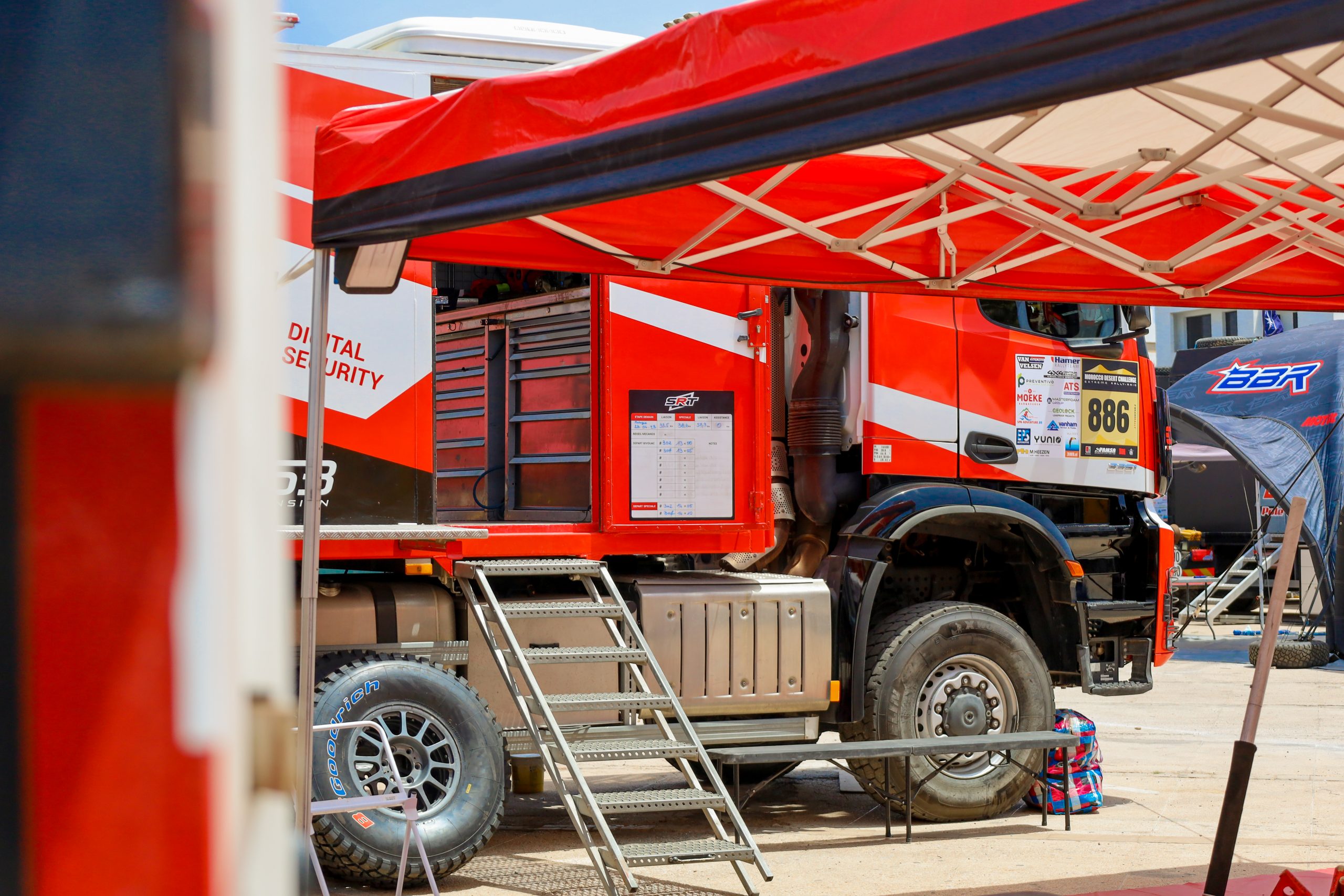Are you feeling overwhelmed with the complexities and uncertainties surrounding Utah probate? Look no further! In this informative article, we aim to provide you with clear and concise information about Utah probate, addressing common legal concerns and offering reassurance and guidance along the way. Our goal is to create an emotional connection with readers and empower them with the knowledge they need to navigate the probate process smoothly. So, if you’re ready to take the next step and seek the assistance you deserve, give us a call today and let our experienced attorney put your concerns at ease.
Utah Probate
Welcome to our comprehensive guide to Utah probate! Whether you’re a Utah resident or have assets in Utah, understanding the probate process is essential. In this article, we will cover everything you need to know – from the definition of probate to the various types of probate in Utah, the benefits and drawbacks of probate, the probate process itself, and much more. So let’s dive in and demystify Utah probate!
Table of Contents
- What is Probate?
- When is Probate Required in Utah?
- Utah Probate Laws
- Benefits of Probate
- Drawbacks of Probate
- Probate Process in Utah
- Choosing an Executor
- Types of Probate in Utah
- Inventory and Appraisal
- Notifying Creditors and Paying Debts
- Distributing Assets
- Final Accounting and Closing the Estate
- How Long Does Probate Take in Utah?
- Probate Costs in Utah
- Probate Alternatives in Utah
- Frequently Asked Questions
What is Probate?
Definition of Probate
Probate is a legal process that occurs after a person’s death. It involves the distribution of their assets and settling their financial affairs. The court oversees this process to ensure that the deceased person’s wishes, as stated in their will, are carried out correctly and that any outstanding debts, taxes, and expenses are paid.
Purpose of Probate
The main purpose of probate is to provide a legal framework for the transfer of assets from the deceased person to their beneficiaries. It helps to prevent fraud, protect the interests of the deceased person’s creditors, and resolve any disputes that may arise among family members or other interested parties.
Assets Subject to Probate
Not all assets are subject to probate. Generally, assets that are solely owned by the deceased person and do not have a designated beneficiary or joint owner will go through probate. This includes real estate, bank accounts, investment accounts, and personal property.
Assets Not Subject to Probate
Certain assets bypass probate and pass directly to the designated beneficiaries. These assets include life insurance policies with named beneficiaries, retirement accounts with beneficiary designations, and property held in a living trust.

When is Probate Required in Utah?
No Will or Trust
Probate is typically required when the deceased person did not have a valid will or trust in place. In such cases, the court will distribute the assets according to Utah’s intestate succession laws.
Minor Beneficiaries
If there are minor beneficiaries named in the will or as heirs, probate is needed to ensure their interests are protected, and a guardian is appointed to manage their inheritance until they reach adulthood.
Disputes among Heirs
When there are disputes among family members or interested parties regarding the distribution of assets, probate provides a formal process for resolving these conflicts.
Creditor Claims
Probate allows creditors to come forward and make claims against the estate. The court ensures that valid debts are paid before any remaining assets are distributed to the beneficiaries.
Utah Probate Laws
Overview of Utah Probate Laws
Utah probate laws govern the probate process throughout the state. These laws outline the procedures, requirements, and protections involved in settling a deceased person’s estate. It is important to have a basic understanding of these laws to navigate the probate process efficiently.
Uniform Probate Code
Utah follows the Uniform Probate Code (UPC), which provides a standardized set of rules and procedures for probate. The UPC aims to simplify and streamline the probate process, making it more efficient and consistent across different jurisdictions.
Intestate Succession Laws
When a person dies without a valid will or trust, Utah’s intestate succession laws determine how their assets will be distributed. These laws prioritize the surviving spouse, children, and other close relatives in a specific order.
Homestead Exemption
Utah provides a homestead exemption, which allows a surviving spouse or minor children to claim a certain amount of the deceased person’s homestead property as exempt from creditors’ claims.
Spousal Elective Share
In Utah, a surviving spouse is entitled to an elective share of the deceased spouse’s estate. This means that even if the deceased spouse’s will does not provide for the surviving spouse, they can claim a portion of the estate.
Exempt Property Allowance
Utah law allows for an exempt property allowance for the surviving spouse, providing them with certain household items and personal property exempt from creditors’ claims.
Family Allowance
Family members who were dependent on the deceased person for support may be entitled to a family allowance. This is a monthly allowance provided from the estate for their maintenance during the probate process.
Benefits of Probate
Court Supervision and Protection
One of the main benefits of probate is that it provides court supervision, ensuring that the deceased person’s wishes are carried out correctly and that the rights of beneficiaries are protected.
Clear Distribution of Assets
Probate provides a clear process for distributing assets, minimizing the risk of assets being mismanaged or disputes arising among beneficiaries.
Resolution of Disputes
If there are disputes among family members or interested parties, probate provides a formal process for resolving these conflicts, reducing the likelihood of ongoing disputes or litigation.
Validating the Will
Probate validates the authenticity and validity of the deceased person’s will, ensuring that their wishes are respected and upheld.
Validating Trust Documents
If the deceased person had a trust in place, probate validates the trust documents and ensures that the assets held in the trust are distributed according to the trust terms.
Establishing Appropriate Guardianship
If there are minor beneficiaries, probate allows for the appointment of a guardian to manage their inheritance until they reach adulthood, ensuring their interests are protected.
Drawbacks of Probate
Time-Consuming Process
Probate can be a time-consuming process, often taking several months or even years to complete, depending on the complexity of the estate and any disputes that arise.
Public Record
Probate is a public process, meaning that the details of the estate, including assets, debts, and beneficiaries, become a matter of public record, which some individuals may wish to keep private.
Costly Fees and Expenses
Probate can be expensive, with fees and expenses that must be paid from the estate, including court fees, attorney fees, accounting fees, and appraisal fees.
Subject to Court Delays
Depending on the court’s workload and other factors, the probate process may be subject to delays, further prolonging the settlement of the estate.
Possible Family Conflicts
Probate can sometimes exacerbate conflicts and tensions among family members, especially when there are disputes over the distribution of assets or the validity of the deceased person’s will.
Complex Legal Requirements
Probate involves various legal requirements, documentation, and deadlines, which can be complex and overwhelming for individuals who are unfamiliar with the legal process.

Probate Process in Utah
Filing the Petition
To initiate the probate process, a petition must be filed with the appropriate Utah court. The petition includes the necessary documentation, such as the will (if applicable) and information about the deceased person’s assets and beneficiaries.
Appointment of Personal Representative
The court will appoint a personal representative, also known as an executor or administrator, to oversee the probate process. The personal representative is responsible for managing the estate, paying debts, and distributing assets.
Notice to Interested Parties
Once the personal representative is appointed, they must provide notice to all interested parties, including beneficiaries, creditors, and other potential heirs. This allows them to come forward with any claims or objections.
Inventory and Appraisal
The personal representative is required to create a comprehensive inventory of the deceased person’s assets, including their value. In some cases, a professional appraisal may be necessary to determine the accurate value of certain assets.
Paying Creditor Claims
The personal representative must notify and pay any legitimate creditor claims against the estate. This ensures that the deceased person’s debts are settled before distributing the remaining assets to the beneficiaries.
Distribution of Assets
Once all debts and expenses are paid, the personal representative can distribute the remaining assets to the beneficiaries according to the deceased person’s will or Utah’s intestate succession laws.
Final Accounting
The personal representative must prepare a final accounting, detailing all financial transactions and distributions made during the probate process. This accounting is submitted to the court for approval.
Closing the Estate
Once the court approves the final accounting and all distributions are complete, the estate can be officially closed, and the personal representative’s responsibilities come to an end.
Choosing an Executor
Role and Responsibilities
The executor, also known as the personal representative, plays a crucial role in the probate process. Their responsibilities include managing the estate, paying debts and expenses, collecting assets, and distributing them to the beneficiaries.
Qualifications of an Executor
An executor should be someone trustworthy, organized, and capable of handling complex financial and legal matters. They should have a good understanding of the deceased person’s wishes and be able to communicate effectively with beneficiaries and interested parties.
Selecting the Right Executor
Choosing the right executor is essential to ensure a smooth probate process. It is important to consider factors such as the individual’s availability, financial acumen, and willingness to fulfill their duties diligently.
Successor Executors
In case the initially chosen executor is unable or unwilling to fulfill their duties, it is advisable to name one or more successor executors in the will or trust. This ensures that someone is always available to carry out the necessary tasks.

Types of Probate in Utah
Formal Probate
Formal probate is the traditional probate process, which involves court oversight and is generally required when there are disputes or complexities involved in the estate. It follows a step-by-step process and involves regular court hearings.
Informal Probate
Informal probate is a more streamlined version of the probate process, reserved for cases where the estate is straightforward, and all interested parties are in agreement. It typically requires minimal court involvement and can be completed more quickly than formal probate.
Summary Administration
Summary administration is the simplest and fastest form of probate available in Utah. It is only applicable for small estates, typically valued at $100,000 or less, excluding the deceased person’s homestead property. Summary administration does not require court oversight and involves a simplified process.
Inventory and Appraisal
The personal representative is responsible for creating a comprehensive inventory of the deceased person’s assets. This includes listing all their real estate, personal property, bank accounts, investments, and any other assets they owned at the time of their death.
Notifying Creditors and Paying Debts
One of the important steps in the probate process is notifying creditors of the deceased person’s passing. This allows creditors to come forward with any valid claims against the estate. The personal representative must then ensure that these debts are paid from the estate’s assets.
Distributing Assets
Once all debts and expenses are settled, and the court approves the final accounting, the personal representative can proceed with distributing the remaining assets to the beneficiaries. This is done according to the deceased person’s will or Utah’s intestate succession laws.
Final Accounting and Closing the Estate
The personal representative is required to prepare a final accounting, providing a detailed overview of all financial transactions and distributions made during the probate process. This accounting is submitted to the court for approval. Once approved, the estate can be officially closed, and the personal representative is relieved of their duties.
How Long Does Probate Take in Utah?
The duration of probate in Utah can vary greatly depending on various factors, such as the complexity of the estate, any disputes among beneficiaries, and the court’s workload. In simple and uncontested cases, probate can take as little as a few months. However, more complex cases can take a year or longer to complete.
Probate Costs in Utah
Probate involves various costs and fees that must be paid from the estate. These may include court filing fees, attorney fees, accounting fees, appraisal fees, and fees for publishing creditor notices. The exact costs can vary depending on the size and complexity of the estate and the services provided by the professionals involved.
Probate Alternatives in Utah
While probate is the default process for settling a deceased person’s estate, there are alternative methods available in Utah that may be appropriate for certain situations. Some of the common probate alternatives include:
- Revocable Living Trusts: Assets held in a properly executed living trust bypass probate and are distributed directly to the designated beneficiaries.
- Joint Ownership with Right of Survivorship: Assets held jointly with right of survivorship automatically pass to the surviving joint owner outside of probate.
- Payable-on-Death (POD) Designations: Certain financial accounts, such as bank accounts and investment accounts, allow for POD designations, which direct the account assets to named beneficiaries upon the account owner’s death.
- Transfer-on-Death (TOD) Deeds: Real estate can be transferred outside of probate by using a TOD deed, which designates the property’s new owner upon the current owner’s death.
It is important to consult with an experienced attorney to determine the most suitable probate alternative for your specific circumstances.
Frequently Asked Questions
What is probate?
Probate is a legal process that involves settling a deceased person’s estate, including distributing their assets, paying debts, and resolving any disputes or claims. It ensures that the deceased person’s wishes are carried out correctly and protects the rights and interests of beneficiaries and creditors.
Why is probate necessary?
Probate is necessary to provide a legal framework for the transfer of assets after a person’s death. It protects the rights of beneficiaries, ensures debts are paid, and prevents fraud or disputes over the estate.
How long does probate take?
The duration of probate can vary depending on the complexity of the estate, any disputes among beneficiaries, and court procedures. In Utah, probate can take anywhere from a few months to over a year.
What are the fees associated with probate?
Probate involves various fees, including court filing fees, attorney fees, accounting fees, and appraisal fees. The exact costs depend on the size and complexity of the estate and the services provided.
Can I avoid probate in Utah?
Yes, there are various probate alternatives available in Utah that can help you avoid the traditional probate process. These alternatives include revocable living trusts, joint ownership with right of survivorship, payable-on-death (POD) designations, and transfer-on-death (TOD) deeds.
What happens if someone dies without a will?
If someone dies without a will, they are considered to have died intestate. In such cases, Utah’s intestate succession laws determine how the deceased person’s assets will be distributed among their surviving spouse, children, and other close relatives.
How do I choose the right executor?
Choosing the right executor is crucial to ensure a smooth probate process. Consider factors like trustworthiness, organizational skills, financial acumen, and willingness to fulfill the responsibilities. It is also advisable to name successor executors in case the primary choice is unable or unwilling to serve.
Can the personal representative also be a beneficiary?
Yes, the personal representative, who oversees the probate process, can also be a beneficiary of the estate. However, it is important to ensure that the personal representative is capable of impartially fulfilling their duties and acting in the best interests of all beneficiaries.
What is the homestead exemption in Utah?
The homestead exemption in Utah allows a surviving spouse or minor children of the deceased person to claim a certain amount of the homestead property as exempt from creditors’ claims. This provides protection for the family home in certain circumstances.
Can I challenge a will in Utah?
Yes, it is possible to challenge a will in Utah if you believe it is invalid for some reason. Common grounds for challenging a will include lack of testamentary capacity, undue influence, fraud, or mistakes in execution. It is advisable to consult with an attorney if you wish to challenge a will.
Remember, this article serves as a comprehensive guide to Utah probate, but it is always recommended to seek legal advice regarding your specific circumstances. Don’t hesitate to contact us at [phone number] for further information and assistance. Our experienced attorneys are here to guide you through the probate process and answer any questions you may have.
Frequently Asked Questions:
-
Can I contest a will in Utah?
- Yes, it is possible to contest a will in Utah if you believe it is invalid. Common reasons for contesting a will include lack of testamentary capacity, undue influence, fraud, or improper execution.
-
What is the role of a personal representative in Utah probate?
- The personal representative, also known as an executor or administrator, is responsible for managing the deceased person’s estate during the probate process. Their duties include gathering and valuing assets, paying debts and expenses, and distributing assets to the beneficiaries.
-
How can I protect my assets from probate in Utah?
- There are several strategies to protect assets from probate in Utah, such as creating a revocable living trust, designating beneficiaries for retirement accounts and life insurance policies, and owning property jointly with right of survivorship. Consulting with an attorney can help you determine the best approach for your specific situation.